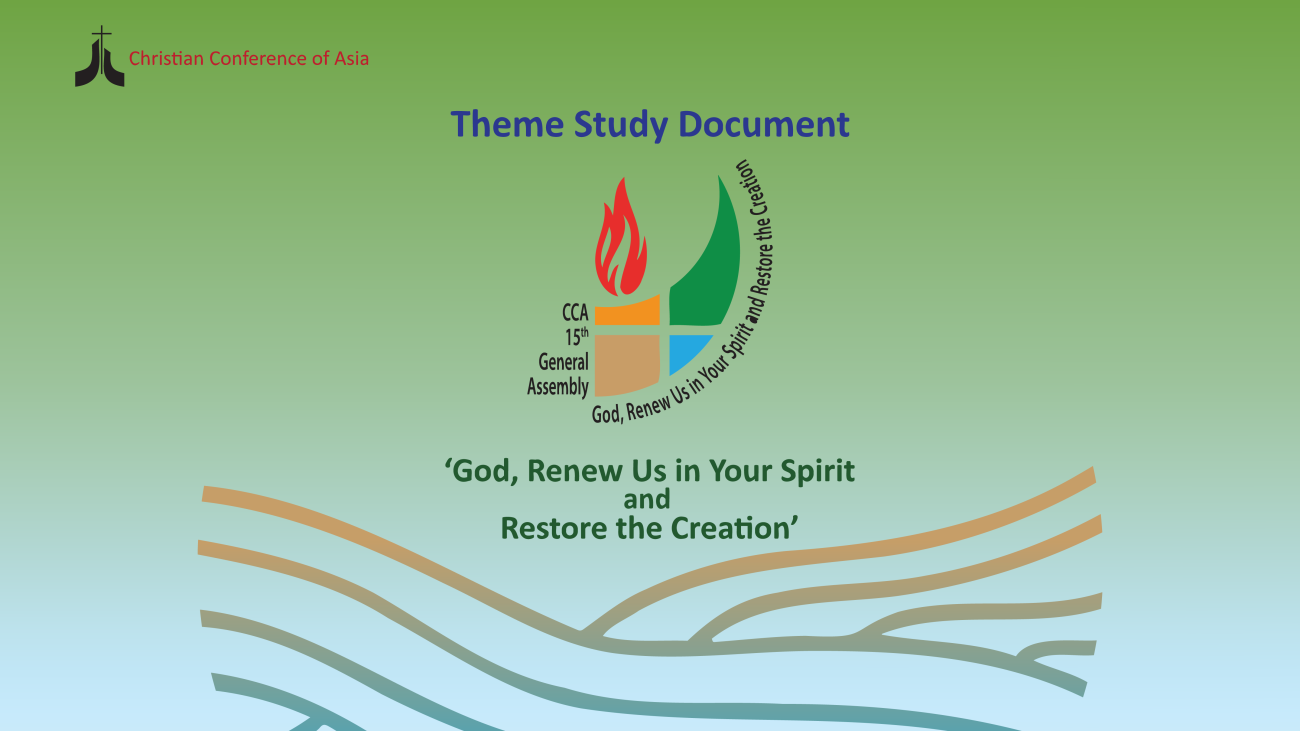CCA releases Assembly Theme Study Document: ‘God, Renew Us in Your Spirit and Restore the Creation’

The Christian Conference of Asia (CCA) released a special Study Document on the theme of the upcoming 15th CCA General Assembly, ‘God, Renew Us in Your Spirit and Restore the Creation’.
Prepared by a team of eminent Asian theologians, the Study Document is an essential resource for not only the participants of the 15th CCA General Assembly but for all Christians across Asia.
The newly unveiled Study Document includes in-depth insights and analyses on the theme itself as well as on three sub-themes, namely, ‘Renewal and Restoration of Creation: Affirming the Will of God’, ‘Renewal and Restoration of Creation: Dwelling in Harmony’, and ‘Renewal and Restoration of Creation: Towards Attaining Life in Its Fullness’.
The Assembly theme and sub-themes carry paramount significance and resonate with the pressing global and climatic challenges that confront the world today: “Never before has humanity had such a great capacity to influence the ecosystem, the basis for the sustainability of all life on earth, yet the fears and anxieties concerning the future of creation have never been greater. We will soon reach planetary boundaries and tipping points for the earth’s capacity to sustain life, and if we do not heed God’s call of renewal and restoration, the impending catastrophe will be impossible to avert…” reads a portion from the Preface by the CCA General Secretary Dr Mathews George Chunakara.
“The 15th CCA General Assembly Theme, ‘God, Renew Us in Your Spirit and Restore the Creation’, is a prayer of public confession and repentance for the sins we have committed. It is also a prophetic witness to the commitment that declares our participation with God in renewing and transforming the relationship with other human beings into a joyful coexistence with the creation and with people of all faith traditions,” reads part of the Study Document.
A concluding paragraph from the resource booklet says, “A radical ecological conversion challenges the conventional anthropocentric understanding of ekklesia and diakonia, which is rooted in the supremacy and self-referentiality of human beings…Churches must be engaged in strengthening the Kingdom values needed to promote a new mentality of living within planetary boundaries, addressing eco-justice, sharing the common conviction of changing lifestyles, consumption patterns, travel and mobility, waste management, and values of eco-social transformation. The fundamental issues of the protection and care of the environment and the promotion of climate justice as an important aspect of the churches’ prophetic witness of diakonia are imperatives for renewal and restoration of the creation from its brokenness.”
The Study Document is the culmination of the Theme Study Working Group, comprising Bishop Dr Daniel Thiagarajah, Rev. Prof. Dr K.M. George, Rev. Dr Jangkholam Haokip, Bishop Kumara Illanga Singhe, Rev. Dr Robinson Christian, and Rev. Prof. Dr Mothy Varkey as the Coordinator and Editor.
The Assembly Theme Study Document can be easily accessed and downloaded using this link: CCA Assembly Theme Study Document










